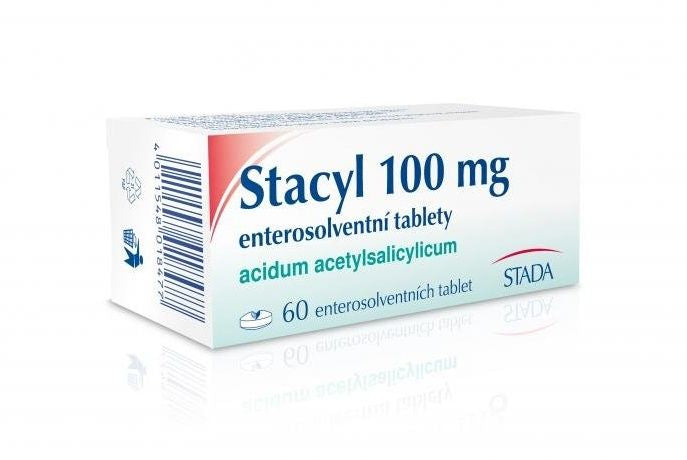Stacyl 100 mg is a medicine that reduces the risk of blood clots. It contains acetylsalicylic acid, which in low doses inhibits the aggregation of platelets. Stacyl 100 mg is taken prophylactically, helping to prevent myocardial infarction, stroke and heart and vascular problems in patients with angina. It is also used to prevent blood clots from forming after certain types of heart surgery to dilate and relax blood vessels. It can be used by adults and adolescents from 16 years of age.
1
/
of
1
Stada
Stacyl 100 mg 60 tablets
Stacyl 100 mg 60 tablets
Regular price
$27.50
Regular price
Sale price
$27.50
Unit price
/
per
Couldn't load pickup availability
Dosage
Adults take 1 tablet a day for a long time as prevention. Drink plenty of liquid. Do not crush, break or chew the tablets. Do not use in acute problems.
Composition
The active substance is acetylsalicylic acid 100 mg in one enteric-coated tablet.
The other ingredients are: tablet core: microcrystalline cellulose, corn starch, colloidal anhydrous silicon dioxide, stearic acid; coating: MA/EA copolymer 1:1, polysorbate 80, sodium lauryl sulphate, triethyl citrate, talc.
Notification
There is an increased risk of bleeding during or after surgery, including tooth extraction (consult your doctor about temporarily discontinuing treatment).
MEDICINAL PRODUCT, READ THE LEAFLET CAREFULLY.
Share


